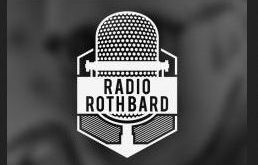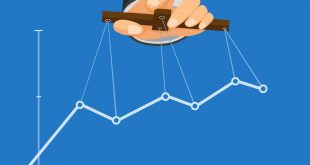After decades of financialization and government favors, Wall Street now has little to do with free, functioning markets anymore and has largely become an adjunct of the central bank. Today, entrepreneurship is out, and bailouts are in. Be sure to follow Radio Rothbard at Mises.org/RadioRothbard. You Might Also Like Politics and Ideas 2021-02-09 In the Age of Enlightenment, in the years in...
Read More »How Not to Argue against the Minimum Wage
Among the hotly contested list of Joe Biden’s promises is an increase of the federal minimum wage to $15 an hour. There are plenty of sound reasons to oppose government minimum wage laws, but there is one objection making the rounds that is based on bad economics and should be avoided, and that’s the “businesses will pass on the costs to consumers” objection. For instance, a now deleted tweet by someone claiming that a $15 minimum hourly wage will cause Taco Bell...
Read More »Why No State Needs Thousands of Nuclear Warheads
Last week, the United States signed a five-year extension of the New START arms control treaty with Russia. Russia’s President Putin signed the treaty shortly thereafter. The “Strategic Arms Reduction Treaty” allows Russia and the US to monitor each other’s nuclear forces, facilities, and activities. The idea is to keep track of the relative strength of the two regimes’ respective arsenals and to encourage reductions. The treaty also caps the number of deployed...
Read More »AOC and Schumer Want Taxpayer Funding for Covid-19 Funerals
. US residents whose family members died with or of covid will be eligible to receive $7,000 for funeral and related expenses, New York senator Chuck Schumer (D) and Representative Alexandria Ocasio-Cortez (D) announced. During a briefing in Queens on Monday, February 8, the duo announced that $267 million of the federally funded funeral benefits would go to low-income families in New York alone. The package, Schumer added, is part of a $2 billion disaster funds...
Read More »The Dystopian Bubble: George Orwell Meets Charles Mackay
“Threats to freedom of speech, writing, and action, though often trivial in isolation, are cumulative in their effect and, unless checked, lead to a general disrespect for the rights of the citizen.” ~ George Orwell In early December I asked Jim Grant how to reconcile exuberant financial markets with economic reality that reads like dystopian fiction. He responded, I’m not sure there’s much distinction. To me, the current form of dystopia is the bubble form. So I...
Read More »Politics and Ideas
In the Age of Enlightenment, in the years in which the North Americans founded their independence, and a few years later, when the Spanish and Portuguese colonies were transformed into independent nations, the prevailing mood in Western civilization was optimistic. At that time all philosophers and statesmen were fully convinced that we were living at the beginning of a new age of prosperity, progress, and freedom. In those days people expected that the new political...
Read More »Title IX Will Become a Vehicle of More Injustice
[unable to retrieve full-text content]President Joe Biden vowed to put a “quick end” to the Trump administration’s Title IX regulations and return to Obama-era ones at universities. If this happens, the sexual misconduct hearings will be deeply impacted.
Read More »A Penchant for Controlling Others
[unable to retrieve full-text content]We all want freedom for ourselves, but many people have doubts about the way others might use their own freedom. Under these conditions, the state is there to help. Get enough people to favor enough restriction, and the state is good to go, administering every aspect of life from its smallest to its largest detail.
Read More »There’s Nothing Wrong with Short Selling
The recent GameStop short-squeeze drama has riveted financial markets. Given the historic unpopularity of short sellers (e.g., Holman Jenkins has written that “short-selling is…widely unpopular with everyone who has a stake in seeing stock prices go up”), the resulting heightened invective against them is not a surprise. Unfortunately, an intensification of this rhetoric could lead to unwarranted broader restrictions on short selling, indicated by the politicians...
Read More »Pennsylvania’s Lockdown Rules Were Arbitrary, Inconsistent, and Political
On October 6, 2020, the auditor general of Pennsylvania, Eugene DePasquale, released a status update on his ongoing audit of the Pennsylvania Department of Community and Economic Development (DCED) waiver process for businesses that appealed Governor Wolf’s covid-19 closure order. To everyone’s surprise, the auditor general concluded that his office discovered inconsistencies and puzzling decisions in the business waiver process. On March 19, Governor Tom Wolf...
Read More » Swiss Economicblogs.org
Swiss Economicblogs.org








